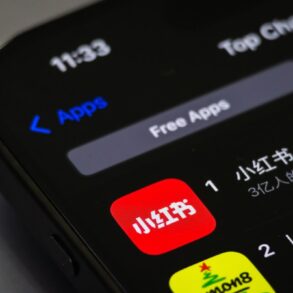
Editor’s Note: Sign up for CNN’s Meanwhile in China newsletter which explores what you need to know about the country’s rise and how it impacts the world.
CNN
—
As Donald Trump became the first former US president to be convicted of a felony on Thursday, the historic verdict sparked huge interest – and a fair amount of schadenfreude – in China.
As a rising authoritarian superpower, China has long sought to project its political system as superior to American democracy.
But while Trump’s trial has been a boon for that narrative, it’s also offered a potential window into something unimaginable and dangerous to the ruling Chinese Communist Party — an elected leader held accountable by independent courts and prosecutors, convicted by a jury of his peers.
For months, Chinese propagandists have attempted to use Trump’s indictments to strengthen Beijing’s narrative of a United States in decline, citing the months-long legal battle as a prime example of the polarization and dysfunction of American politics.
And as China woke up Friday to the news of Trump’s conviction on 34 felony counts of falsifying business records, the country’s heavily censored social media lit up.
On Weibo, China’s X-like platform, the verdict became the top trending topic, racking up more than 120 million views by the afternoon.
“Trump’s supporters, hurry up and mobilize, storm the Capitol,” said a top comment under a news brief by state news agency Xinhua.
Another said: “Comrade Nation Builder Trump should not be fighting alone.”
On the Chinese internet, the former US president earned the nickname of Chuan Jianguo, or “Trump, the (Chinese) nation builder” during his time in office – a quip to suggest his isolationist foreign policy and divisive domestic agenda were actually helping Beijing to overtake Washington on the global stage.
Some nationalist influencers gleefully mocked the verdict. “It seems that in 2024, a civil war in America is not just a dream!” said one such blogger with 4 million followers.
Under leader Xi Jinping, China’s most assertive leader in decades, the country’s social media platforms have become increasingly dominated by anti-American, nationalistic voices.
“Although he is guilty, he can still run for president. A ‘criminal’ can become president – this is the ridiculous aspect of Western-style democracy,” said another.
Hu Xijin, former editor-in-chief of state-run nationalist tabloid Global Times, also weighed in.
“Naturally, Chinese people are watching the spectacle with amusement,” he said on Weibo. “Here’s what everyone is most concerned about: First, will Trump actually go to jail? Second, can he still run for president?”
But analysts say Trump’s conviction could be a tricky topic for Chinese state propagandists to navigate.
“On the one hand, it highlights a rotting and fracturing American democracy. On the other hand, it highlights that a former top leader can be arrested, put on trial, judged by jury of peers and convicted, for relatively small acts of corruption,” wrote Bill Bishop, a China watcher and author of the Sinocism newsletter.
China’s judicial system remains tightly beholden to the ruling Communist Party, according to legal observers, and has a conviction rate of around 99%.
The timing of the conviction also added to the sensitivity, coming just days before the 35th anniversary of Beijing’s bloody crackdown of the pro-democracy Tiananmen movement in 1989, according to Bishop.
So far, Chinese state media outlets have yet to publish the kind of blistering commentaries that previously appeared alongside news coverage of Trump’s legal entanglements.
Alfred Wu, an associate professor at the Lee Kuan Yew School of Public Policy at the National University of Singapore, said China’s state media is unlikely to play up the coverage in the days ahead.
“They don’t want to attack Donald Trump because if he becomes the president, they know the consequences. Instead, they’re likely to use it to showcase the problems of the US system,” said Wu, a former reporter in China.
“They need to be really careful about that.”





